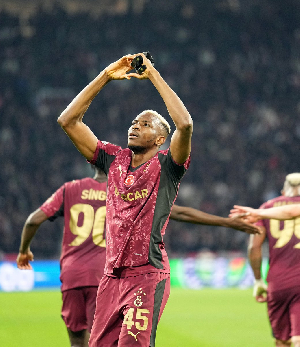Seasoned Nigerian top comedian, Amb. Francis Agoda aka I Go Dye was all over the news last week for adding another international honour to his collection as he was appointed as a Global Diplomat for Sustainable Development Goals and Peace Advocate Ambassador by the International Association of World Peace Advocates (IAWPA).
The superstar humour merchant speaks with Potpourri on the appointment, his career, inspirations, beliefs and more. EXCERPTS:
Congratulations on your appointment as a Global Diplomat for Sustainable Development Goals and Peace Advocate Ambassador. How did you react when you first received the news?
It was a humbling moment not just for me, but for every youth who has ever raised their voice for justice, peace, and development. When I received the news, it was my manager who first told me. I paused in deep reflection. I thought about the young boy from Abraka who grew up without electricity or pipe-borne water, then moved to Warri where bad roads were still a reality. I realized how far the journey has been. It was a reminder that we are all born for different purposes in life.
You’ve worn many hats — comedian, activist, and now global diplomat. How has your journey in comedy prepared you for this new international role?
My humble beginning taught me the power of truth, and that’s what reflects in my comedy. It gave me a voice when I had no political platform and allowed me to challenge powers in society without fear. My jokes are highly philosophical and divinely inspired, helping me connect with people across ethnic, social, and political lines. That emotional connection is crucial for diplomacy because the first step towards change is when people feel discomfort in their environment, and you connect with their thoughts. That is the only way to be understood.
Many know you for your satire and humor. How do you balance being a comedian and a serious voice on issues like corruption, governance, and peacebuilding?
I don’t separate them I merge them. Comedy is beyond making people laugh. I see comedy as my weapon to fight against fear, especially the fear of poverty because many children still face that challenge. Justice and the betterment of society are my goals. So I use laughter to open difficult conversations. I may make you laugh, but you’ll leave thinking and hopefully, acting.
Your survival of the 1997 Ijaw-Itsekiri crisis clearly shaped your commitment to peace. How does that experience continue to influence your activism today?
That crisis changed me forever. I saw blood on the same soil where I once played as a child. I witnessed communities torn apart by hate that politics inflamed. Since then, I’ve always known that there is nothing you can use to compare to peace or the price of keeping it. For me, it’s about the pain of those we loved and lost to that ugly incident. I still feel the pain every second. The scars are not on my body, but I bear the pain in my memory. That memory gives me strength. It’s a reminder of the need for opportunity, justice, and mutual respect. My activism today is shaped by that trauma. I speak out so others won’t have to experience what I did.
You’ve received numerous awards and honours. What makes this (IAWPA )global diplomatic appointment different or more meaningful to you?
Every award or honour for me is to serve humanity or recognition for my works , they are all meaningful to me because every curve was shaped by someone with love, so there’s no real difference, I was created to serve. This is not just about recognition it’s about responsibility. It means I now carry a mandate that transcends entertainment or activism. It’s about policy, that will help to shape a world where peace and development won’t just be a dream, but a beautiful reality. We must take this responsibility seriously for the sake of the next generation.
You’ve used your platform to write open letters and challenge leadership across Africa. What changes or reforms are you most passionate about right now?
I’m passionate about institutional accountability, youth inclusion in governance, and the reform of our security and educational systems. Our continent is not poor it’s poorly managed. I want to see a Nigeria, and an Africa, that truly work, one we can all be proud of.
Finally, how can enduring peace be achieved in Nigeria?
No amount of trillion dollars our leaders spend on weapons that can ever bring peace. Good governance is the first step in restoring peace in Nigeria When people feel safe, protected, and loved by their country, peace becomes possible. It must begin with justice and equity. We must dismantle the systems that thrive on ethnic division, economic disparity, and political manipulation.
Entertainment of Sunday, 13 July 2025
Source: www.vanguardngr.com













